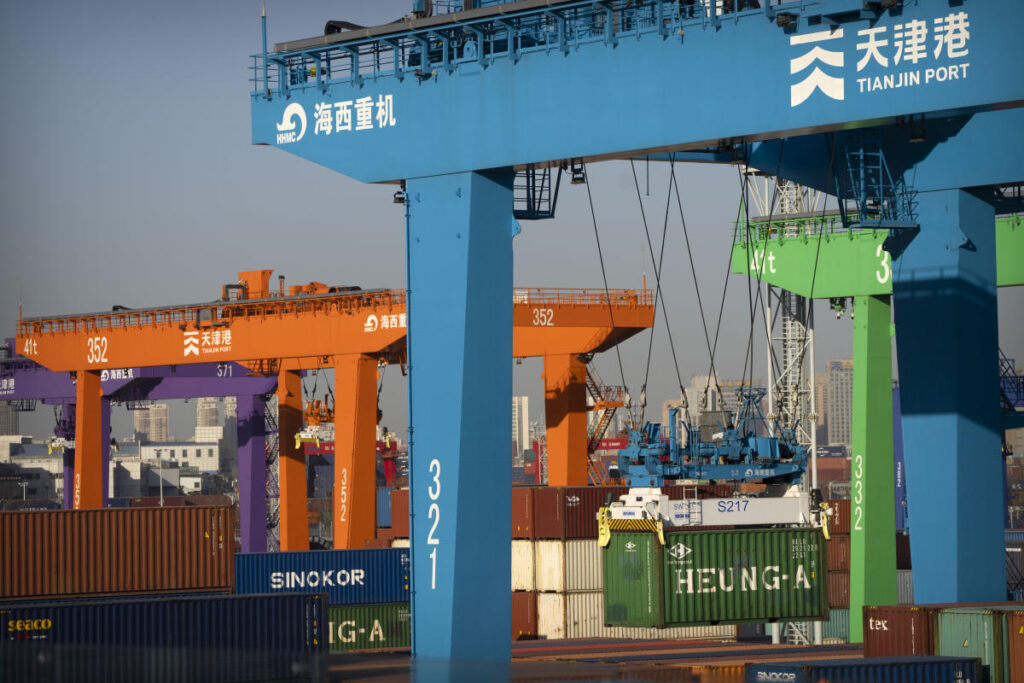WASHINGTON (AP) — After a surprisingly resilient year, the global economy is expected to falter next year under pressure from war, still-high inflation and persistently high interest rates.
The Paris-based Organization for Economic Cooperation and Development (OECD) said on Wednesday that global economic growth will slow to 2.7% in 2024 from an expected 2.9% this year, the slowest calendar-year growth rate since the pandemic hit 2020.
Despite the darkening outlook, the OECD “projects that a recession will be avoided in almost all regions,” OECD Secretary-General Mathias Cormann said at a news conference.
But it added that there were risks of inflation remaining persistently high and that the conflict between Israel and Hamas and Russia's war in Ukraine could affect commodity prices such as oil and grains.
The main driver of the slowdown is that the OECD expects the world's two largest economies, the United States and China, to slow next year. The U.S. economy is projected to expand to just 1.5% in 2024 from 2.4% in 2023 as the Federal Reserve's interest rate hikes (11 since March 2022) continue to restrain growth. The Fed's interest rate hikes have significantly increased borrowing costs for consumers and businesses, and in the process, have slowed inflation from a 40-year peak in 2022. The OECD projects U.S. inflation to fall from 3.9% this year to 2.8% in 2024 and to 2.2% in 2025, just above the Fed's 2% target level.
For now, the U.S. economy looks good. The Commerce Department said Wednesday that the U.S. economy grew at a robust 5.2% annual rate from July through September, buoyed by strong consumer spending and rising private investment.
China's economy, beset by a devastating real estate crisis, rising unemployment and slowing exports, is expected to grow 4.7 percent in 2024 from 5.2 percent this year. China's “consumption growth is likely to remain weak due to rising precautionary saving, poor prospects for job creation and elevated uncertainty,” the OECD said.
The 20 member states of the European Union, which share the euro currency, are also likely to contribute to a slowdown in the global economy as they are hit by rising interest rates and energy prices following Russia's invasion of Ukraine.
The OECD sees the euro area as a whole growing 0.9% next year, weak but an improvement from the 0.6% forecast for 2023.
“The key takeaway today is that the US outlook has been revised upwards for 2024, while the European outlook has been revised downwards,” OECD chief economist Claire Lombardelli told reporters.
The story continues
She pointed to the impact on Europe last year when Russia all but cut off natural gas supplies to the continent, sending energy prices soaring, causing costs to soar for households and businesses, sparking a cost-of-living crisis and hitting factories in Germany and elsewhere.
The global economy has been hit by one shock after another since the start of 2020, including the COVID-19 outbreak, a resurgence in inflation as the recovery from the pandemic turned out to be unexpectedly strong, the war in Ukraine, and rising borrowing rates as central banks acted aggressively to counter accelerating consumer price inflation.
But despite all this, the economic expansion has proven stronger than expected. A year ago, the OECD projected global growth of 2.2% in 2023. That forecast was too pessimistic. Now the organization is warning that the lull may be over.
“Growth in 2023 has been stronger than expected so far, but is now slowing as the effects of tightening financial conditions, weak trade growth and weakening business and consumer confidence are increasingly felt,” the OECD said in the 221-page report.
The OECD also warned that the global economy faces new risks arising from rising geopolitical tensions due to the war between Israel and Hamas, “particularly if the conflict escalates.”
“This could cause significant disruptions to energy markets and key trade routes,” it said.
___
AP Business Writer Courtney Bonnell contributed from London.



